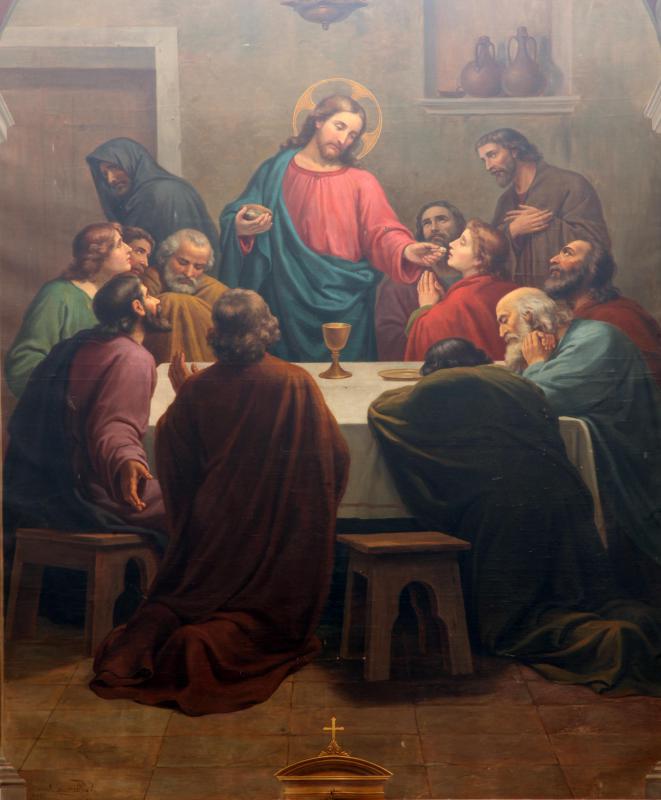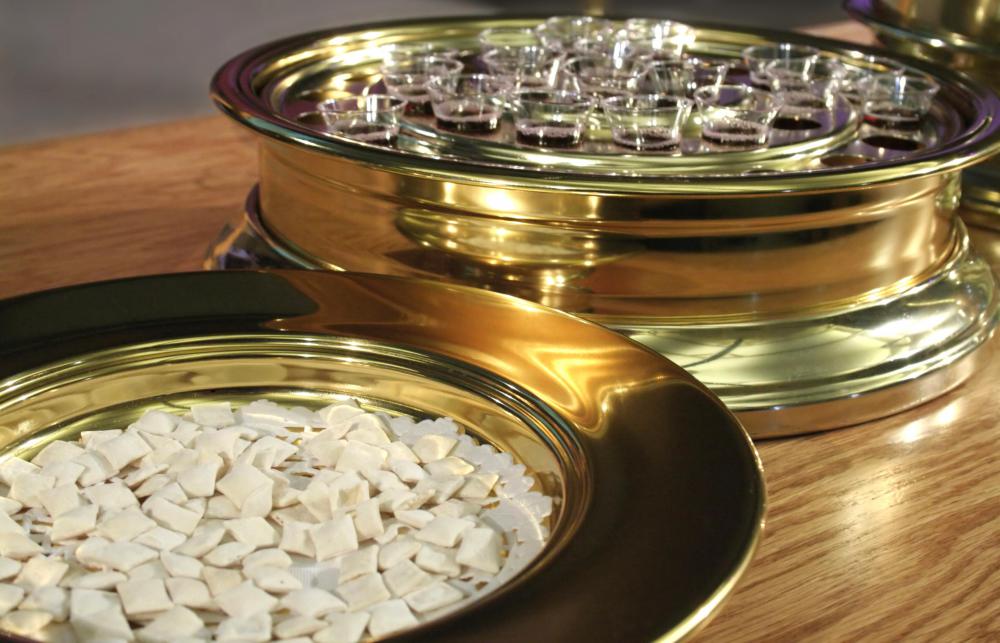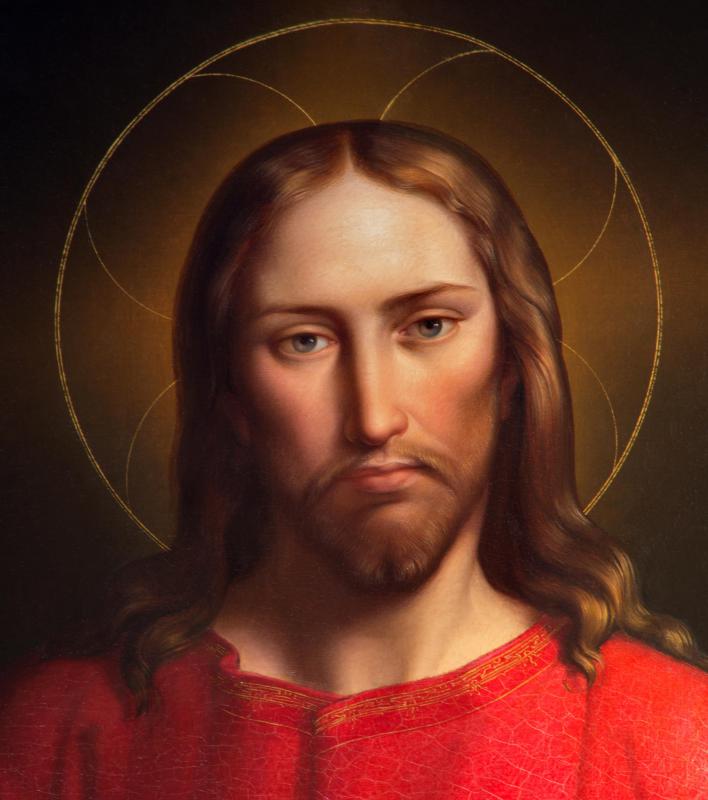At WiseGEEK, we're committed to delivering accurate, trustworthy information. Our expert-authored content is rigorously fact-checked and sourced from credible authorities. Discover how we uphold the highest standards in providing you with reliable knowledge.
What is the Eucharist?
Eucharist may refer to either the actual elements of the biblical Last Supper, or the modern Christian ritual which commemorates it. The word itself comes from the Greek word for "thanksgiving." Catholics and some Protestant denominations use "Eucharist" interchangeably with "Mass" to describe their Sunday morning Communion services. Other Protestant denominations may describe the Eucharist ceremony as "The Lord's Supper," "The Great Thanksgiving," or "Holy Communion."
When Jesus Christ assembled his disciples for a final meal during Passover, He used the common elements of bread and wine to illustrate a point. As the disciples consumed a portion of bread, Jesus told them they were actually eating His flesh, at least in a spiritual sense. The communal wine would represent His blood, which would soon be spilled as an atonement for man's sins. These elements of bread and wine, along with the intimate communications between believers and God, formed the basis of the Eucharist ceremony.

Modern Christian denominations have varying opinions on this ritual. The Eucharist is considered to be an essential sacrament for Roman Catholics and Eastern Orthodox followers. Some believe that the physical bread and wine are mystically converted into the actual blood and flesh of Jesus Christ. This literal translation of the ritual is called transubstantiation. Although the bread and wine do not undergo changes in their outward appearance, a priest's blessing is believed to draw the real essence of Christ into the elements.

There are Protestant churches which support the idea of the Eucharist inheriting some spiritual qualities, but these qualities are more symbolic than literal. Christians of all denominations are encouraged to re-examine their spiritual health during the Lord's Supper. Certain denominations believe that participants in the ceremony should only partake of the elements if they have developed a true relationship with God. The Eucharist ceremony is not something to be taken lightly or irreverently.
AS FEATURED ON:
AS FEATURED ON:















Discussion Comments
Sounds like a big hoopla over nothing, You cannot find authorization in any chapter between Genesis and Revelation.
I would like to point out that transubstantiation is not a "literal" translation of the bread and wine to the Body, Blood, Soul, and Divinity of Christ. Rather, transubstantiation refers to a change in the "essence" of the species of bread and wine. The "accidents" remain the same.
For example, a one-legged man is still a man, for his essence (man-ness or humanity) is unchanged. However, we could differentiate between a one- and a two-legged man by noting the accidents (or physical traits) inherent in their numbers of limbs.
As a Christian, I believe that when a lawfully ordained priest utters the words of consecration, the essences of the bread and wine become the essence of the God-Man, Jesus Christ. However, the accidents of the bread and wine (gluten, ethanol, various molecules) remain. This is indeed a miracle. Ordinarily, we see accidents change and essences remain (I lose an eye, but I retain my humanity; my mother becomes pregnant, but her essence is unchanged).
All in all, this was a fine article, accurate and well-balanced. I congratulate whoever wrote it.
@cmsmith10- It just depends on the particular religion or church. It is observed regularly in most churches. Some observe it more often than others do. Most Catholic Churches offer communion, or Eucharist, daily. However, a Catholic is only required to participate in Eucharist once a year.
Most Baptist churches offer communion (The Lord’s Supper) once a month. Others offer it every three months. It really depends on the church that you attend.
I know that different religions refer to the Eucharist in different ways. Do Catholics do it every week? How often is it observed in other religions?
I wanted to add that my son will be participating in his first communion ceremony in a few months. He will be taking the holy Eucharist for the first time when he finishes his preparation course in his CCD class. This is a two year course that began when he was in first grade.
He already completed his first confession a few months back which is required in order to receive the Catholic Eucharist.
We are planning a nice brunch for him afterward. I have relatives coming in from all over just to see him during his ceremony.
Post your comments